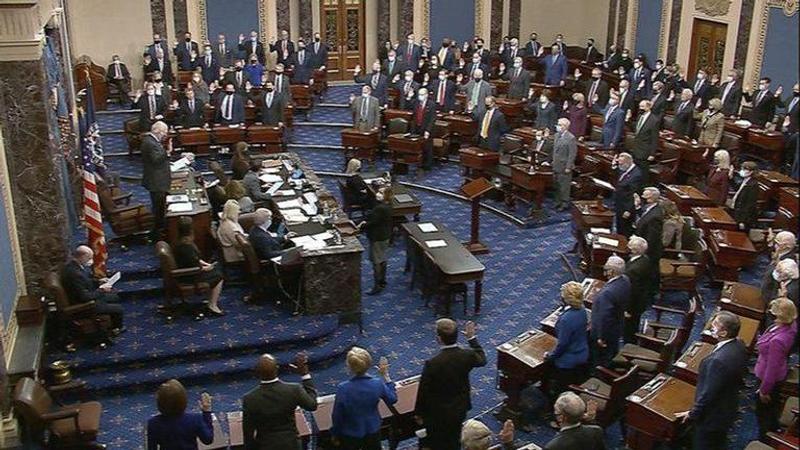Published 15:43 IST, February 6th 2021
Explainer: How will Donald Trump's impeachment trial take place?
Former US President Donald Trump’s second impeachment trial begins February 9, forcing the Senate to decide whether to convict him of incitement of insurrection

Advertisement
Former US President Donald Trump’s second impeachment trial begins Tuesday February 9, forcing the Senate to decide whether to convict him of incitement of insurrection after a violent mob of his supporters laid siege to the Capitol in January. The Senate trial comes after the House, on January 13, impeached the 74-year-old Republican, making him the first leader in US History to be impeached twice. Experts believe that Trump, who triggered global outrage with his act, would be inevitably acquitted.
How does the trial work?
As per the US Constitution, the House has the sole power of impeachment while the Senate has the right to try the leader- President, Vice president or any Civil Officer- on charges. The leader could only be convicted if two-thirds of the senators present there, vote for it. For the trial, the House of Representatives appoints ‘impeachment managers’ who act as prosecutors and argue with the defendant’s lawyers. Both the prosecutors and Trump’s defence team would have a set amount of time to make arguments, and then senators can ask questions in writing before a final vote. Once senators reach a final vote, each lawmaker will stand up and cast their vote: guilty or not guilty. Usually, the Chief Justice of America presides over President’s impeachment trial, however with Trump out of office, the presiding officer will be Sen. Patrick Leahy, who is the ceremonial head of the Senate.
Why try Trump when he is out of office?
While Trump and other Republicans argue that the impeachment trial is unnecessary, Democrats have disagreed citing the impeachment of a former secretary of war, William Belknap, who resigned in 1876 just hours before he was impeached over a kickback scheme. In addendum, Democrats led by Nancy Pelosi have also opined that if convicted, Trump would be barred from taking any public office in future, which would be an apt “punishment” for somebody who tried to hold on to power by unconstitutional means. Lastly, they have also opposed the “January exception” stating that there should be no exception for presidents who commit impeachable offences just before they leave the office.
Image source: AP
15:43 IST, February 6th 2021




